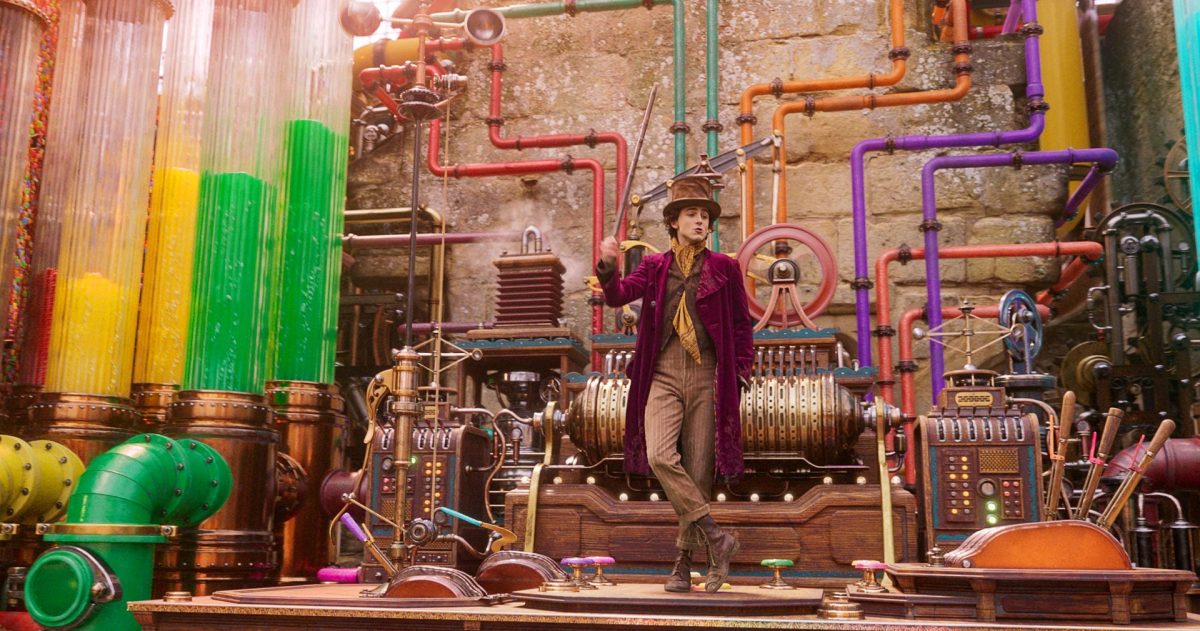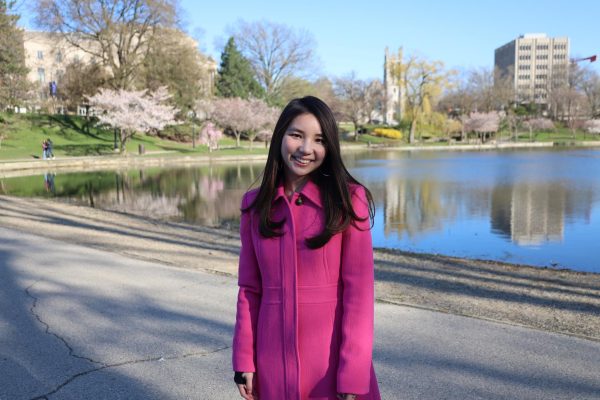Willy Wonka existed in popular culture long before his introduction in “Wonka.” The audience’s first introduction to his character was through Roald Dahl’s 1964 best-seller “Charlie and the Chocolate Factory,” which was the basis for the 1971 classic movie, “Willy Wonka and the Chocolate Factory.” “Wonka” is set as a prequel to this movie, turning back the clock to showcase how Wonka overcame obstacles to become a renowned chocolate maestro. The film, which premiered in December 2023 and was directed by Paul King, welcomes viewers to a world of pure imagination.
Keeping in mind that, as his mother told him, “every good thing in this world started with a dream,” “Wonka” features elaborate musical scenes, high-comic caricatures and, of course, plenty of nods to the original movie. The aim of the prequel’s story is to show how Wonka (Timothée Chalamet) went from dreaming of owning a chocolate shop to scouring exotic landscapes for ingredients, and eventually beating the Chocolate Cartel at their own corrupt game.
After failing to read the fine print, Wonka is scammed by Bleacher (Tom Davis) and Mrs. Scrubitt (Olivia Colman), who run a boarding house and laundry. There, he and the other hostages are forced to work off their enormous debts one bedsheet at a time. Wonka is in good company with his fellow tenants Abacus (Jim Carter), Lottie (Rakhee Thakrar), Piper (Natasha Rothwell), Mr. Chucklesworth (Rich Fulcher) and Noodle (Calah Lane). Despite these obstacles, Wonka perseveres in making and selling chocolate with the help of his fellow multitalented tenants. Noodle becomes Wonka’s taste-tester, business partner and close friend, showcasing a softer, more human side of Wonka that’s not apparent in the 1971 film.
Although the movie is titled “Wonka,” Noodle plays almost an equally important role. Both orphans for different reasons, Wonka and Noodle are drawn to each other and have to trust one another to survive the boarding house. After agreeing to be business partners, Wonka promises to help her pay her debts to Bleacher and Mrs. Scrubitt, a promise we see him overcome obstacles to keep. Noodle’s identity as an orphan is unfortunately used as a plot device, but the main motif in “Wonka” is still family. Wonka carries with him the last chocolate bar his mother made—a Wonka bar—in hopes of seeing her again when he achieves his chocolate-making dreams. Additionally, his tenants’ teamwork drives Wonka’s chocolate success and brings Noodle a sense of belonging.
Harkening back to the “Willy Wonka and the Chocolate Factory,” “Wonka” incorporates aspects of the original film’s quintessential soundtrack and sets. The soundtrack overall is a good fit for the movie’s aesthetic; however, it lacks the long-term memorability the original 1971 soundtrack has. In terms of set design callbacks, Wonka’s store opening features a chocolate river and oversized candies that have whimsical effects—a nod to candies such as the Everlasting Gobstoppers and Fizzy Lifting Drinks in “Willy Wonka and the Chocolate Factory.”
Expanding upon the original movie, Wonka is presented not only as a chocolatier, but also as somewhat of a magician. Through his chocolate-making travel kit, which is practically a desk-sized chocolate factory, and the fantasy-like adventures he goes on with Noodle, “Wonka” adds a sense of mythical wonder and humanity to the previously-known character. “Wonka” is as inscrutable and whimsical as the titular character himself, perfectly capturing his personality while giving its audience a clear path to how he reached chocolate-making iconacy.



